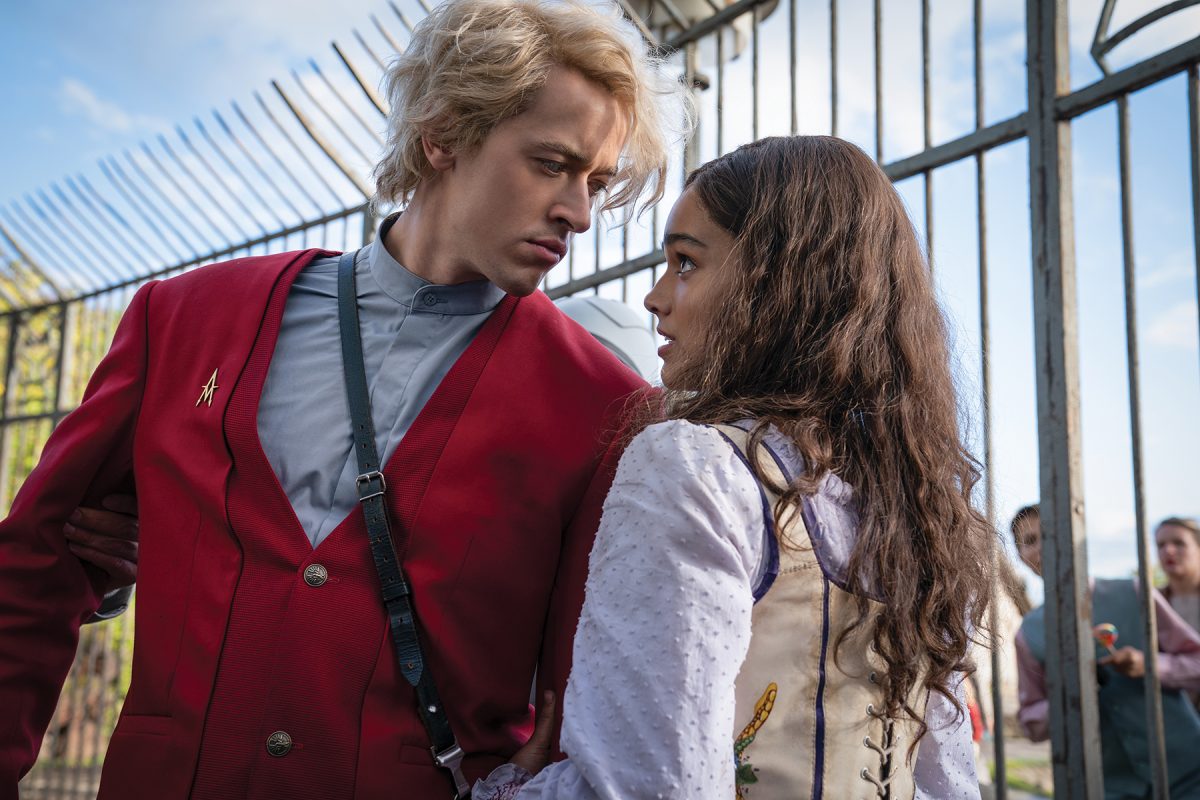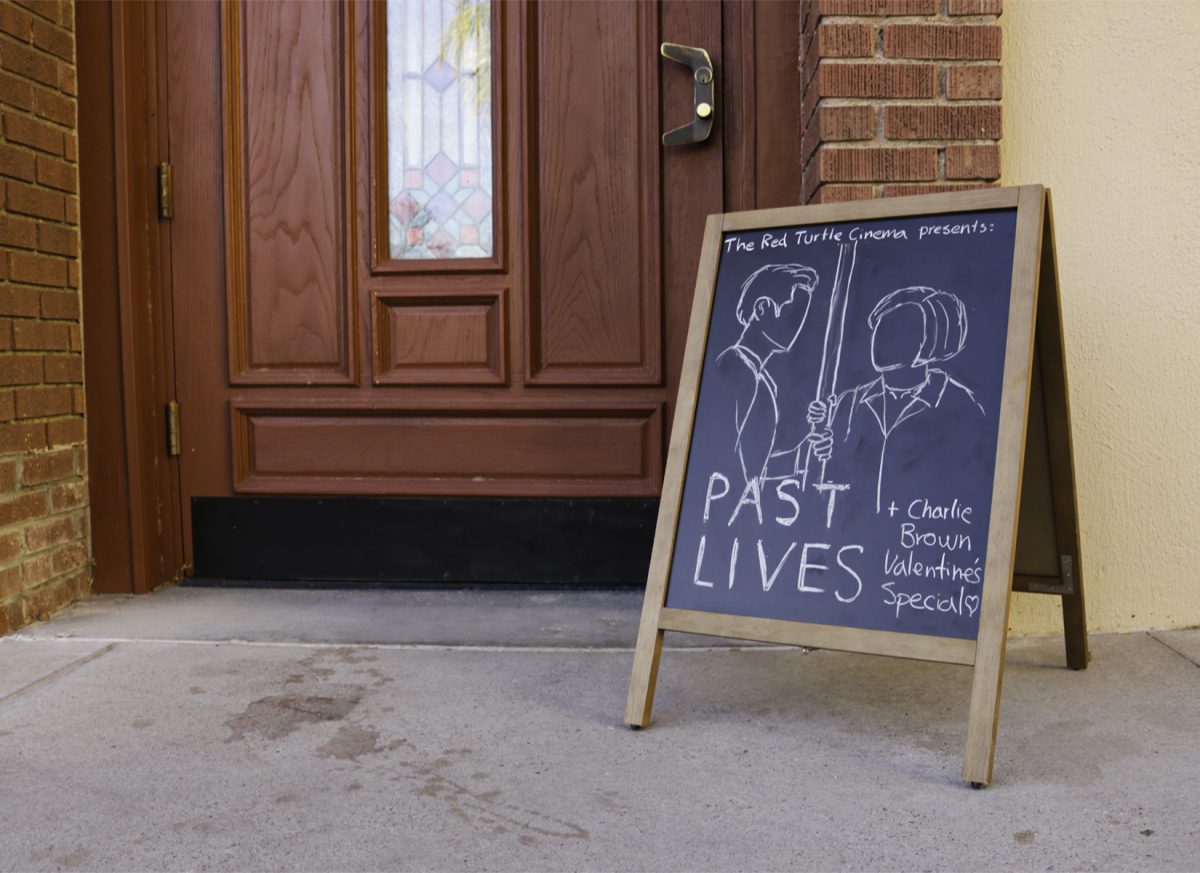Editor’s Note: This review contains spoilers.
It has been eight years since audiences have last been graced with the fictional world of Panem on the big screen. Now a five-movie franchise, “The Hunger Games: The Ballad of Songbirds and Snakes,” is the latest installment and another great book adaptation in the series. “The Ballad of Songbirds and Snakes” takes place during the 10th annual Hunger Games, where viewers are introduced to a familiar name and new faces. President Snow is seen in a new light as the young, curious and up-and-coming leader from the Capitol. Here, Coriolanus Snow (Tom Blythe) has yet to run Panem and meet Katniss; the girl from District 12 who would later lead the rebellion against him.
Audiences also meet Lucy Gray Baird (Rachel Zegler) the unlucky girl reaped from District 12 who would later be mentored by young Snow and eventually win the annual Hunger Games. Some other characters introduced are Tigris Snow (Hunter Schaffer) cousin to Coriolanus, Casca Highbottom (Peter Dinklange) inventor of the Hunger Games, Dr. Volumnia Gaul (Viola Davis) head Gamemaker, Sejanus Plinth (Josh Andres Rivera) Snows’ closest “friend” and Lucretius ‘Lucky’ Flickerman (Jason Schartzman) the first host of the annual games.
With so many years having passed since the end of “The Hunger Games Trilogy,” director of all three films, Francis Lawerence, took the reins for the latest installment hoping to continue its success and storytelling.
The movie tackles three parts, The Mentor, The Prize and The Peacekeeper, each part showcasing the rise of the darker side of the President Snow many know from the original trilogy.
The Mentor
In the first part, Coriolanus Snow is struggling to keep his family afloat after the death of his father during Panem’s civil war. With little to no money, Snow is working to be the best in his graduating class to receive the esteemed Plinth prize; money given by the Plinth family to cover the cost of university for the winning student. In a surprise twist, the Plinth prize would instead be awarded to the student who can turn one of the district tributes into a spectacle during the games.
Snow is then matched with Lucy Gray Baird, a singer from District 12 who is already seen as somewhat of a spectacle in the Capitol after her impromptu singing during the reaping.
During this part audiences see the bond and chemistry begin to form between Snow and Gray that will later be vital during the actual events of the games.
The Prize
In the middle of the film, The Hunger Games take place showcasing how different the games are initially compared to what many know them as during the 74th and 75th games.
Here is where many can see the bond Snow has built with Gray as he is willing to cheat to help Gray win the games. Being the climax of the story, although the games seem to add no complexity to the story line it showcases how Snow has let “love” stray his way of thinking. Audiences see how Snow is willing to do anything to allow Lucy to win all while looking like the best student. However, Snow is tested on his “love” for his friendships when Sejanus Plinth has put himself in the arena to bid condolences to a tribute from District 2; where Plinth is originally from.
During that moment we see how Snow loses all sense of humanity by killing an innocent tribute when trying to exit the arena. This is where moviegoers see a shift in Snow’s personality and watch him losing his humanity and becoming a cold-hearted capitol resident.
Prior to the next phase of the film, people see this is the downfall of Coriolanus, as he is no longer allowed to live in the Capitol. He is away from his family and friends, even Lucy Gray, and has no sense of control over his life other than with missing Lucy Gray.
The Peacekeeper
As we reach the end of the film, we see the rise of Snow. How Snow is willing to kill anyone to make sure he is seen as the best or land on top, as in his own words, “snow always lands on top.” Though we see the rise of Snow we also see how becoming a Peacekeeper, the Panem military, has shifted his consuming thoughts of the ‘Plinth Prize’ to finding Lucy Gray and a way back to the Capitol.
Being put in District 12, Snow finds Lucy Gray and begins to have a real relationship with her, however, it quickly falls apart. After word of a rebellion reaches the Capitol, thanks to Snow, Sejanus is hung alongside others for treason, placing Snow as a hero for trying to stop the rebellion again. This is when Lucy Gray convinces Snow to run away with her to live among the trees, but it is quickly changed when Snow admits to killing three people when Lucy Gray only knew of two. Not wanting to reveal he was the reason for the hanging of Sejanus, Snow tries to convince Lucy Gray he killed ‘his old self’ in the games to be the person he is today.
Not convincing enough to Lucy Gray, she begins to plot a way to leave Snow according to his point of view. In a quick stop at an abandoned cabin, Lucy Gray walks out to pick katniss, a swamp potato, which creates an internal battle with Snow. Not knowing why she left, Snow is convinced Lucy Gray is trying to kill him after a snake, that was hidden underneath his mother’s scarf which he gifted to Lucy, attacks him.
After struggling with the “betrayal” of Lucy, Snow is sent to District 2 for officer training where he is later sent to the Capitol.
It is here where Snow becomes the skeleton of the more well known “President Snow,” not caring for anyone but himself, willing to do anything to land on top, only caring for the people of the Capitol rather than the districts and ready to kill anyone who will stop him from getting there.
Overall, the film gets 4 out of 5 stars. Although it was a prequel, this movie could have easily been a standalone if the trilogy was not established already. The storytelling was great but at times felt rushed, especially with a run time of two hours and 38 minutes. Compared to the book the movie was a great adaptation. A lot cut out from the book was not vital to the storytelling in the movie and although it would have been great to see some of those events unfold on the big screen it could have quite possibly taken the run time to four hours.
Itzel Anahi Giron is the Editor-in Chief and may be reached at [email protected]; @by.itzel.giron on Instagram, and @itzel_anahi_16 on X.







